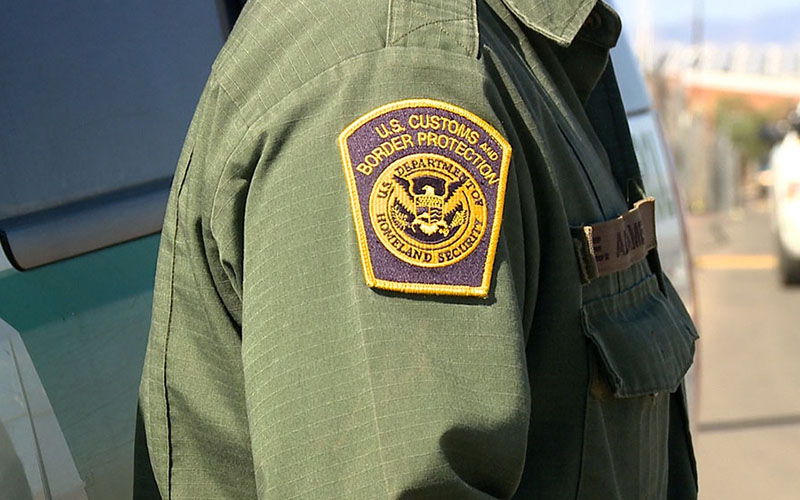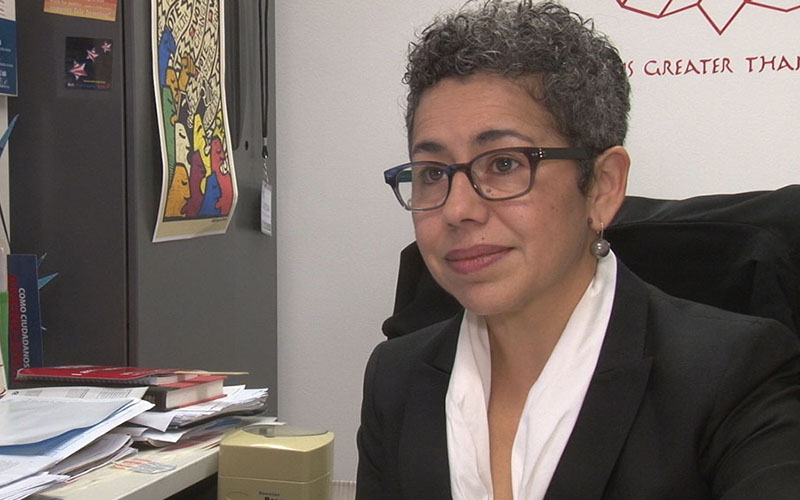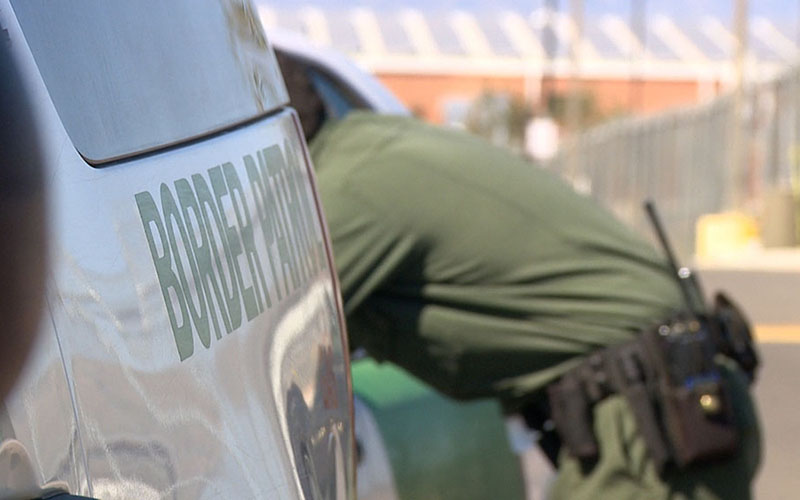
New directives from Homeland Security Secretay John Kelly call for a range of changes to immigration enforcement polices, as the agency moves to enforce President Donald Trump’s executive orders on immigration. (Photo by Cronkite News)

Clarissa Martinez de Castro, deputy vice president of the National Council of La Raza, called the Homeland Security policies part of a Trump administration “scorched earth” approach to immigration. (Photo by Tyler Fingert/Cronkite News)

Officers with Border Patrol, Immigration and Customs Enforcement and some local police agencies would have greater latitude to deport immigrants under policies laid out by the Department of Homeland Security. (Photo by Cronkite News)
WASHINGTON – The Department of Homeland Security officially spelled out how it will enforce President Donald Trump’s hardline immigration orders, sparking the same debate Tuesday that followed the president’s original executive orders.
The memos from Homeland Security Secretary John Kelly call for 15,000 new border and immigration agents, reiterate plans for a border wall, target families that send money home to have their children “smuggled” into the U.S. and renew the department’s commitment to deporting anyone who has committed a deportable offense.
They also call for expedited deportations of some immigrants and the expansion of programs that deputize local police agencies to act as immigration officers, among other changes.
But the memos specifically let stand – for now – former President Barack Obama’s Deferred Action for Childhood Arrivals, or DACA, which deferred deportation for some immigrants.
See related stories:
Immigration advocates took little comfort in the fact that DACA was exempted, saying the memos represent a “major departure” in U.S. policy and arguing that the Trump administration is merely laying the groundwork for mass deportations. Opponents said they are already studying the policy for the best way to challenge it.
But supporters of stricter border enforcement policies welcomed the policy change, which one said was “long overdue.” The memos outline strategies to enforce Trump’s Jan. 25 orders on border and interior immigration security.
Jessica Vaughan, the director of policy studies at the Center for Immigration Studies, said the Obama administration policy of letting some immigrants stay as long as they did not commit serious crimes was a mistake.
“That sends the message around the world that if you get here and haven’t committed serious crimes, you’re home free,” Vaughan said.
She said that if immigration laws are enforced completely, and people can’t get away with living here illegally, there will not be as much incentive to come to the U.S. or to stay here. Vaughan also said uniform enforcement would prevent the need for “door-to-door, house-to-house, job-place-to-job-place questioning (of) people to try to find illegal immigrants” that critics have charged would happen.
“That’s just a cartoon version of immigration enforcement and it’s not necessary,” she said.
-Cronkite News video by Tyler Fingert
But other experts said the DHS memos are a major shift in immigration policy.
Before, certain unauthorized immigrants who committed serious criminal offenses could be deported, but many others were exempt from immediate deportation, said Faye Hipsman, policy analyst at the Migration Policy Institute. Now, even though the Kelly memos list enforcement priorities, “no unauthorized immigrant is exempted from deportation,” she said.
She also said the memos’ call for expedited deportations, in which unauthorized immigrants do not get a hearing before a judge prior to deportation, has typically been restricted to use at the border. The new memos suggest any unauthorized immigrant in the U.S. can be targeted for expedited deportation as long as they came here less than two years ago, Hipsman said, regardless of where they are in the country.
Others said the policies are too far-reaching and would let Immigration and Customs Enforcement and other border agencies violate basic human rights without giving due process.
Marielena Hincapie, executive director of the National Immigration Law Center, said in a conference call Tuesday afternoon that violation of due process is one of the legal challenges her organization is considering as it looks at possible ways to fight the policies.
Clarissa Martinez de Castro, the deputy vice president of the National Council of La Raza, said the administration’s “scorched earth” approach to immigration enforcement will make American communities less safe by making every immigrant a priority for deportation, lessening the focus on deporting dangerous immigrant criminals.
Martinez said the department is giving itself the authority to be “judge, jury and executioner” in dealings with immigrant communities.
She said her organization will pressure elected officials to fight the policies, to support sanctuary cities that are “trying to uphold the Fourth Amendment” and to help local organizations provide resources for community members to protect themselves from deportation.
What is “heartening” about recent events, Martinez said, is that voices from churches, restaurants and schools that have not been involved in the immigration debate are now speaking out in support of immigrants and their contributions to the country. She pointed to last week’s “day without immigrants” protests and the rise of sanctuary churches.
Petra Falcon, executive director of Promise Arizona, said in a conference call with other immigration advocates that her organization will join others around the nation in a day of action Wednesday, when advocates will urge their lawmakers to stand up against the policies.
After fighting Arizona’s SB 1070 immigration law and longtime Maricopa County Sheriff Joe Arpaio, “we’ve learned how to fight back,” Falcon said of advocates in the state.